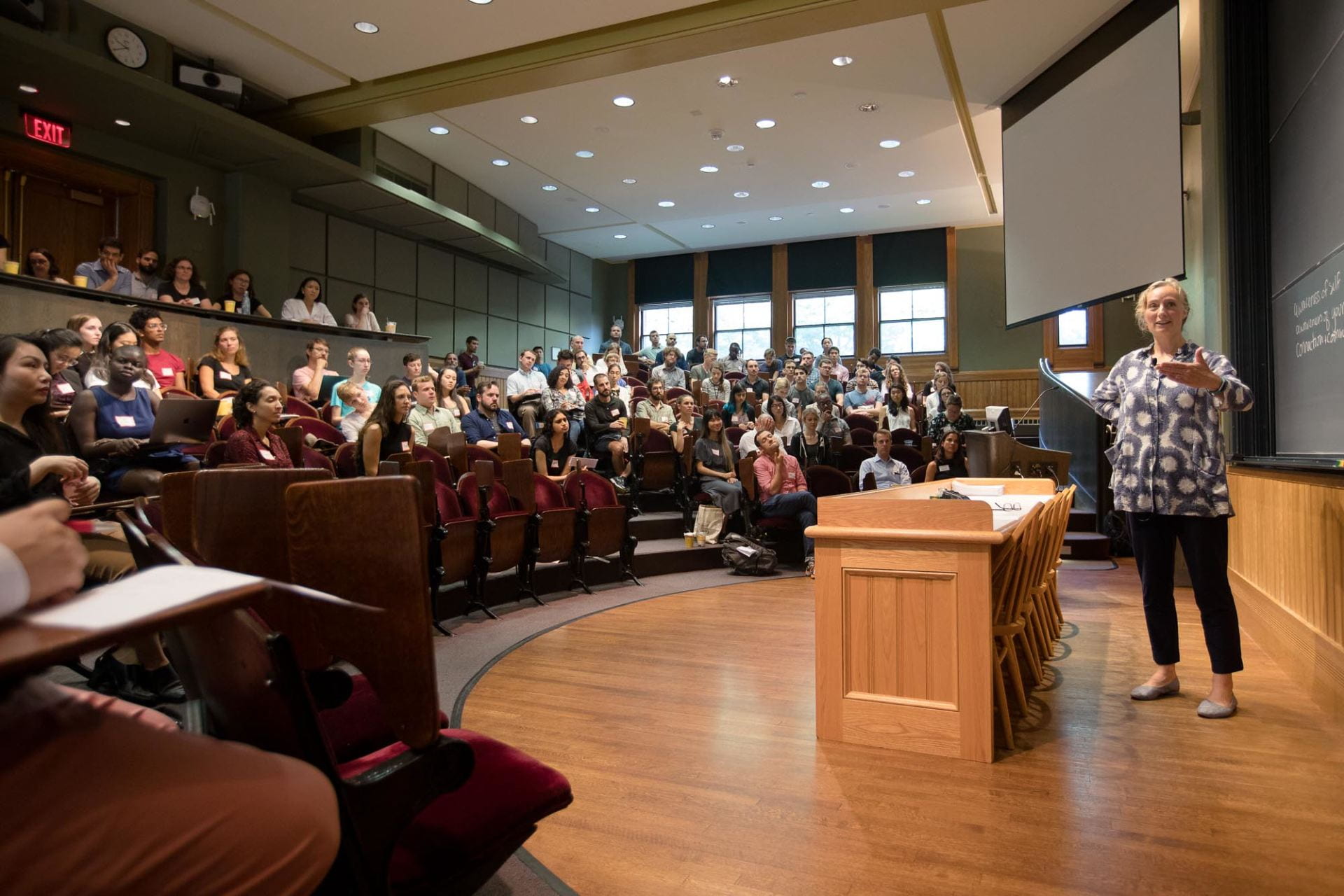Academic accommodations are individualized based on your needs and are determined through an interactive process that involves you, your DAO advisor, and your faculty for implementation.
At the start of each semester, or as soon as a new accommodation is approved, you will log into the AIM portal to select which of the approved accommodations are needed in each of your classes. This will result in a customized email notification that is sent to your Faculty.
Early notification and active communication with instructors is the best way to ensure that accommodation requests are handled effectively. Accommodations are not applied retroactively.
Academic Policy Adjustments
Certain elements of course and academic policies may require flexibility or alternative timelines.
Academic Policy Adjustments can involve:
- Course-specific determination of reasonable adjustment of deadlines and attendance
- Reducing the number of courses taken every semester
- GSAS Milestone and G-Year timeline adjustments
Academic Policy Adjustments do not:
- Fundamentally alter course or program requirements
- Require individualized instruction or different modes of teaching and learning
- Allow for unlimited or extensive absences or deadline flexibility
Accessible Formats
The Disability Access Office (DAO) collaborates with the Assistive Technology Center (ATC) to provide course materials in accessible formats. ATC offers accessible formats including Braille, tactile graphics, and electronic text.
Accessible Formatting includes:
- Alternative text formats, font size, or creation of accessible digital content
- Braille materials
- Audio Descriptions
- Speech-to-text and text-to-speech conversions
Accessible Formatting does not:
- Alter required readings (number of pages) or content
- Change course or program requirements
- Require students to pay for Braille or text conversion services
Communication Access
Students with communication-related disabilities, including those who are Deaf or hard-of-hearing, may require access to communication professionals in the classroom or sound amplification.
Communication Access includes:
- The use of personal or classroom audio amplification
- Real-time captioning and/or captioned media
- American Sign Language interpreting
- Alternative methods of communication
Communication Access does not:
- Prevent students from working with peers or in experiential settings
- Change course or program requirements
- Require students to pay for ASL/captioning services
Testing
Students may require additional time, technology or a more accessible setting to demonstrate their learning on timed assessments.
Test-Taking Accommodations can adjust:
- The amount of seated time to complete a test
- The number of test-takers in a room
- Technology used to complete tests
- Seating/furniture
- Break time
Test-Taking Accommodations do not:
- Allow for unlimited testing time
- Change the number or type of test questions
- Convert in-person to take-home tests
- Change test dates
Note Taking
Note-taking accommodations create equitable access for students whose disabilities limit their ability to take detailed, hand-written notes in class.
Note-Taking Accommodations include:
- Technology such as apps, smart pens, and software to facilitate independent note-taking
- Audio recording
- Use of a laptop, tablet, and/or stylus
- Peer note-taking assistance
Note-Taking Accommodations do not:
- Eliminate the need to take lecture notes
- Alter participation or attendance requirements in class
- Allow for recordings to be shared, posted, or saved post-semester
- Give permission to video record
